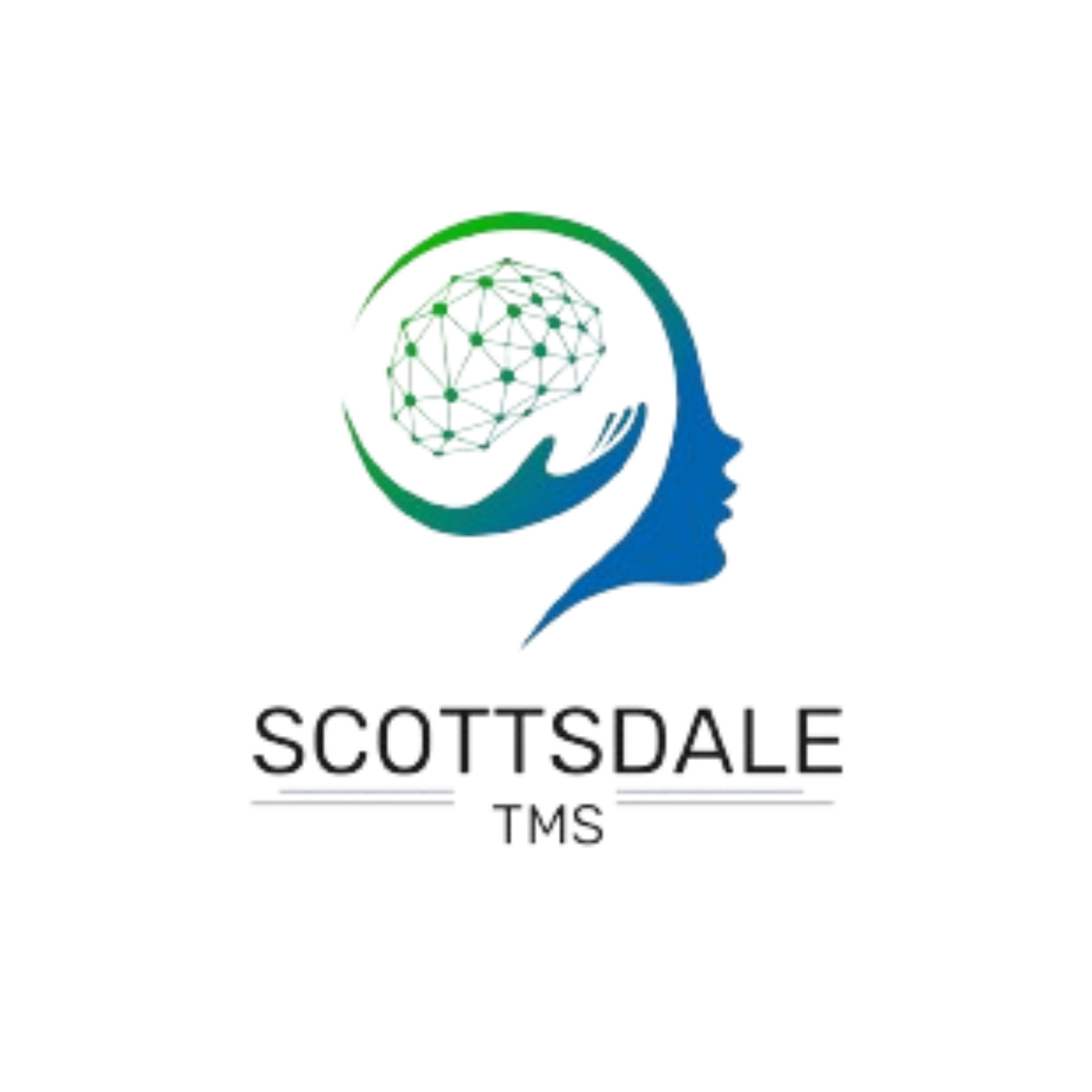Addiction affects brain function, making it harder to resist cravings and make healthy decisions. Traditional treatments, such as therapy and medication, work for many but not all. TMS therapy for addiction offers a non-invasive solution to help rewire the brain and restore balance without the need for medication.
For those seeking an alternative treatment for addiction, transcranial magnetic stimulation (TMS) provides hope, especially for individuals struggling with substance use disorders (SUD) like drug addiction and alcoholism. Unlike medications, which introduce chemicals into the body, TMS therapy uses magnetic pulses to stimulate the brain naturally.
Questions Answered in This Article:
Our Alcohol Addiction Treatment Programs

Scottsdale Rehab
Luxury Personalized Rehab

Hart Rehab
Holistic Luxury Personalized Rehab

Scottsdale Detox
Luxury Medical Detox
What is TMS Therapy for Addiction?
Transcranial Magnetic Stimulation (TMS) is a cutting-edge treatment that uses magnetic pulses to stimulate brain areas responsible for cravings, decision-making, and impulse control. Originally developed to treat mental health conditions like depression, TMS is now being explored as an effective treatment for addiction.
The process involves placing a device on the scalp that delivers electromagnetic pulses to targeted brain regions. These pulses activate neural pathways involved in addiction, promoting healthier decision-making and reducing compulsive behaviors. TMS for addiction works by directly addressing the neurological changes caused by substance use, making it an innovative treatment option for long-term recovery.
How Does TMS Therapy for Addiction Work?
TMS therapy primarily targets the prefrontal cortex, the part of the brain responsible for:
- Decision-making
- Impulse control
- Emotional regulation
By stimulating this region, TMS therapy for addiction helps to:
- Reduce cravings
- Improve mood stability
- Enhance self-control
Each TMS session lasts about 30 to 45 minutes, during which patients remain awake and relaxed. Sessions are scheduled multiple times per week over several weeks to allow the brain to adapt to the stimulation.
Unlike medications, TMS does not introduce foreign substances into the body, making it a safe, long-term solution for addiction. This approach also helps individuals who may be concerned about developing dependence on prescription drugs used in traditional treatment programs.
Benefits of Transcranial Magnetic Stimulation for Addiction
TMS therapy offers several key advantages over conventional treatment options:
- Non-Invasive
- Minimal Side Effects
- Reduces Cravings
- Improves Mental Health
- Long-Term Recovery Support
Studies suggest that TMS can help people with drug addiction or alcoholism by reducing the urge to use substances. For some, it can make the recovery process easier by lowering withdrawal symptoms and improving emotional stability.
Who Can Benefit from TMS Therapy?
TMS may be a good option for individuals who:
- Have tried other treatment programs without success.
- Experience strong cravings or withdrawal symptoms during recovery.
- Have co-occurring mental health conditions like depression or anxiety.
- Want a long-term solution to manage addiction.
TMS is especially beneficial for people who struggle with substance use disorder (SUD) and have difficulty with impulse control. Since it stimulates brain regions responsible for decision-making, it can improve self-control and reduce the risk of relapse.
TMS for Drug and Alcohol Addiction
Drug addiction and alcoholism affect brain function, making it difficult for people to stop using. Traditional treatment plans often include therapy and support groups like Alcoholics Anonymous, but these may not work for everyone.
TMS is gaining attention as a treatment for addiction because it does not require medication. People recovering from drug and alcohol dependence often worry about becoming dependent on new medications, but TMS eliminates that concern. By directly targeting the brain circuits involved in addiction, it provides a unique solution that goes beyond conventional methods.
Risks and Considerations of TMS Therapy
While transcranial magnetic stimulation (TMS) is considered safe, there are some potential side effects and risks, including:
- Mild headaches or scalp discomfort at the stimulation site.
- Muscle twitches or tingling sensations during treatment.
- Rare risk of seizures, especially for individuals with a history of epilepsy.
It is essential to discuss your treatment plan with a healthcare provider to determine whether TMS is a suitable option for you.
Cost and Accessibility of TMS Therapy
One common concern about TMS therapy for addiction is cost and insurance coverage. TMS can be expensive, with multiple sessions required over several weeks. Some insurance providers may cover TMS treatment, but coverage varies. If you are considering TMS, it is important to check with your insurance provider and explore financing options.
The Role of TMS in Managing Withdrawal Symptoms
Withdrawal symptoms can be one of the most challenging aspects of addiction recovery. These symptoms vary depending on the substance used but often include:
- Anxiety and depression
- Insomnia
- Irritability
- Fatigue
- Cravings
TMS therapy helps manage these symptoms by stabilizing brain activity and improving mood regulation. By reducing the severity of withdrawal symptoms, TMS makes it easier for individuals to stay committed to their recovery journey.
Combining TMS with Other Treatment Options
While TMS is powerful on its own, it works best when combined with other treatment options such as:
- Therapy
- Support Systems
- Lifestyle Changes
- Medical Supervision
Many rehab centers offering TMS therapy for addiction integrate it with behavioral therapies to provide a well-rounded approach. Combining brain stimulation with structured counseling improves overall success rates and helps patients maintain sobriety.
Comparing TMS to Other Treatment Options
TMS Therapy vs. Medication-Assisted Treatment (MAT)
- MAT uses prescription medications (such as methadone or buprenorphine) to manage addiction, while TMS therapy for addiction is medication-free.
- TMS targets brain activity directly, whereas MAT primarily manages withdrawal symptoms and cravings through pharmaceuticals.
TMS Therapy vs. Behavioral Therapy
- Behavioral therapy focuses on changing habits and thought patterns, while TMS therapy rewires neural pathways.
- Combining both approaches can lead to better outcomes.
TMS Therapy vs. Traditional Rehab Programs
- Many rehab facilities incorporate therapy, support groups, and medical supervision.
- Luxury rehab centers now offer TMS therapy as part of holistic treatment options.
TMS and Mental Health Conditions
Substance use disorders often coexist with mental health conditions such as depression, anxiety, and PTSD. Since TMS has been widely used to treat mental health disorders, it can be an effective dual-purpose treatment for individuals facing both addiction and mental health struggles.
By addressing both addiction and co-occurring mental health conditions, TMS therapy improves overall well-being and reduces the risk of relapse. This makes it an effective treatment option for individuals who have struggled with both substance use and mental health challenges.
Finding the Right Treatment for Addiction
Not all rehab centers offer TMS therapy for addiction, so it’s important to research and find centers specializing in brain stimulation for addiction recovery. Scottsdale TMS Therapy is one such facility that provides specialized care for individuals with substance use disorders (SUD).
If you or a loved one is searching for effective ways to treat addiction, consider centers that offer TMS therapy as part of a personalized treatment plan. Finding the right treatment for addiction is essential for long-term recovery, and TMS therapy can be a powerful tool in your journey to a healthier life.

